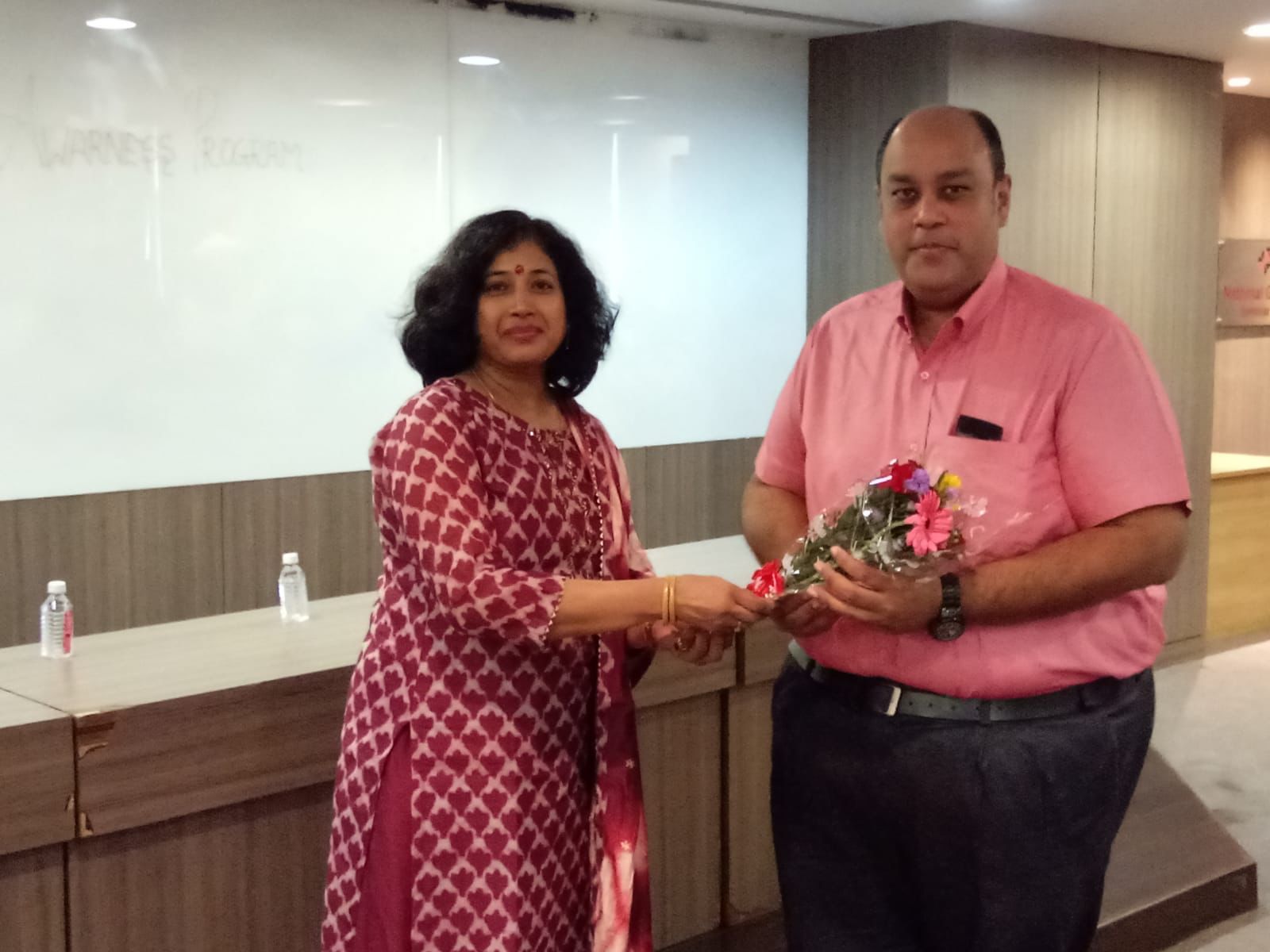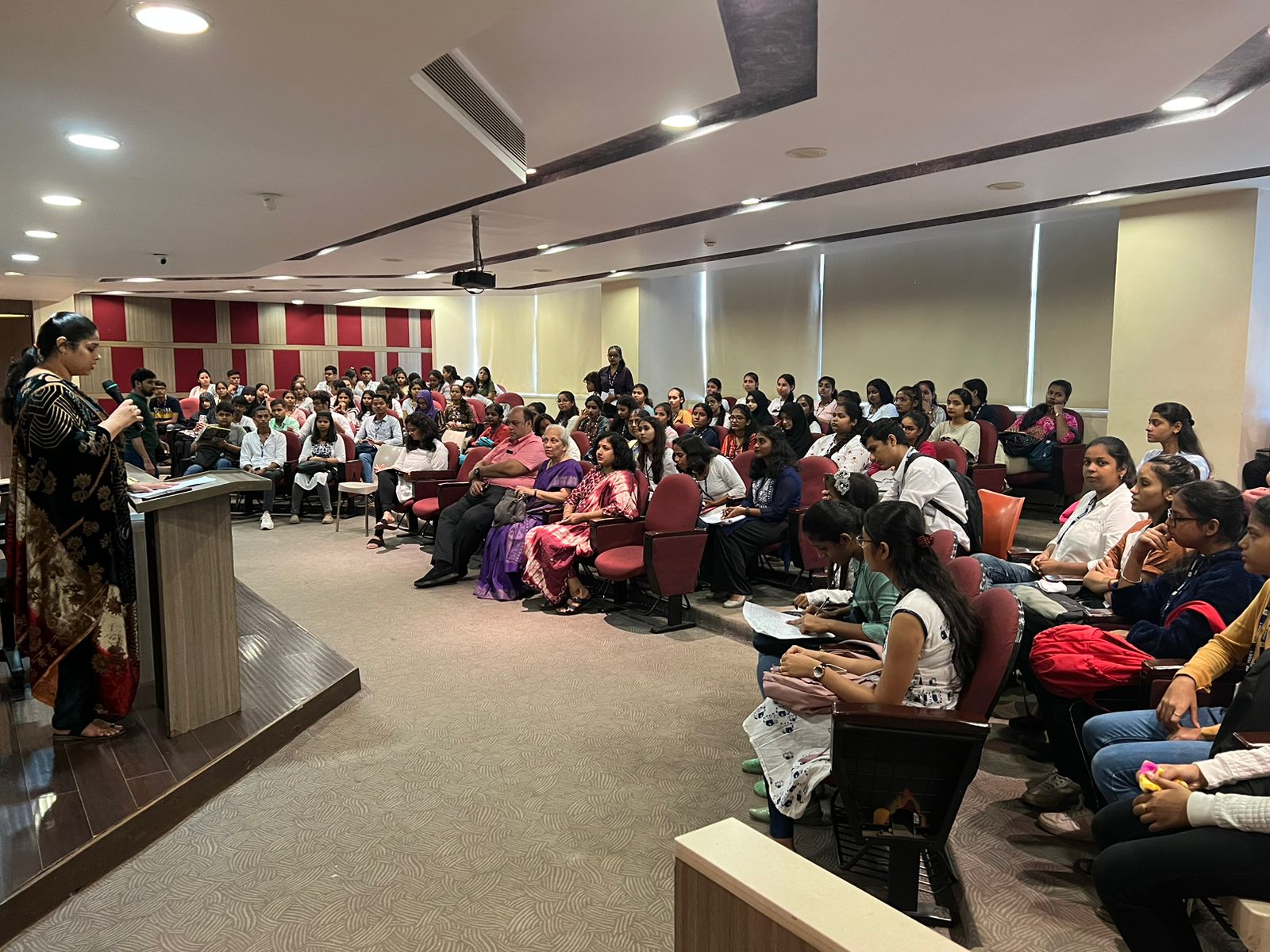Suicide Prevention Workshop – 26th September, 2022
A suicide prevention workshop was conducted on 26th September, 2022 for GSCC students to create awareness about the negative implications of taking poor care of our mental health and preventing suicide rates. Dr. Avinash Desousa, consultant psychiatrist, RMCC had conducted the session.
‘Every suicide is preventable’. Dr.. Avinash spoke about the taboo around mental health and how people are apprehensive about reaching out to mental health professionals. He mentioned that no matter what challenge we face in life, and how difficult it may seem, it is possible to find solutions and work through the difficulties we face and we must not give up hope. He said that like we reach out for regular health, dental check ups, we should visit counselors/ mental health professionals for our regular mental health check up too. Asking individuals who seem sad/ depressed, “Do you think life is worth living?” does not plan the thought in their mind and may help us prevent suicide and help them find relevant support in times of adversity. In cases when they have emotional difficulties, encourage them to reach out for support and counseling.
Risk factors for Suicide:
- Has attempted suicide in the past
- Has a mental health condition/ serious physical ailment
- Expresses feelings of hopelessness
- Has money/ legal problems
- Has violent/ impulsive behavior
- Has alcohol or substance abuse dependence
- Has easy access to self harm methods
- Has a history of sexual/ emotional/ physical abuse or has been abused
- Has a history of being neglected/ bullying
- Has lost important relationships due to break up/ death/ divorce
- Has a family history of death by suicide.
- Is socially isolated; lacks support.
- Is ashamed to ask for help, especially help for mental health conditions.
- Lacks access to healthcare services, especially mental health and substance abuse treatment.
- Holds cultural or religious belief that suicide is a noble option to resolving a personal dilemma.
- Has become aware of an increased number of local suicides or an increase in media coverage of deaths by suicide.
Statistically, according to the World Health Organization, one out of three people are depressed and one out of five people are anxious. Suicide rates are higher for invidiuals in the age group 15-30 years and for adults above 65 years. We have always been told not to speak about our private emotions, but as an expert in the field, he encourages constant expression of emotions because it helps us be authentic with ourselves and regulate our emotions better. He spoke about the importance of being kind and actively listening even when we can’t offer solutions when someone is discussing their issues and just lending them a helping ear. He mentioned that the most common challenges for individuals in their college are academic difficulties, problems within/ with their families, problems with friendships and romantic relationships which leads them to take their life because the problems seem unsolvable. But he reiterated how everything can have a solution if one decides to seek help. We need to seek out help for personal counseling from professional mental health practitioners in case of emergencies and when support is required.
He mentioned that instead of assuming that significant people around you just understand you, speak and talk to them and be clear with your communication. Sometimes sharing your problems and knowing that others are also going through something similar emotionally helps. Sometimes, when we are feeling difficult emotions, we may indulge in non suicidal self harm behavior which is also dangerous and can be life threatening. If friends are not coming by themselves to communicate their problems, take appointments for them and help them get the right mental health support they need. Students discussed their frustrations related to poor communication with their parents and Dr. Avinash mentioned that a lot of challenges occur due to generation gap and viewing things differently. Expecting others around us to change is not easy but we can only focus on changing ourselves. He mentioned that the emotions we throw are what we receive so treat people with kindness.
He mentioned that he wants to make world a suicide free place and encouraged others to also speak about mental health, and seek help and propogate mental health awareness. The students were very participative and interactive during the session and the feedback was positive. In case of emergencies, seek out support to RMCC and do not suffer in silence.





